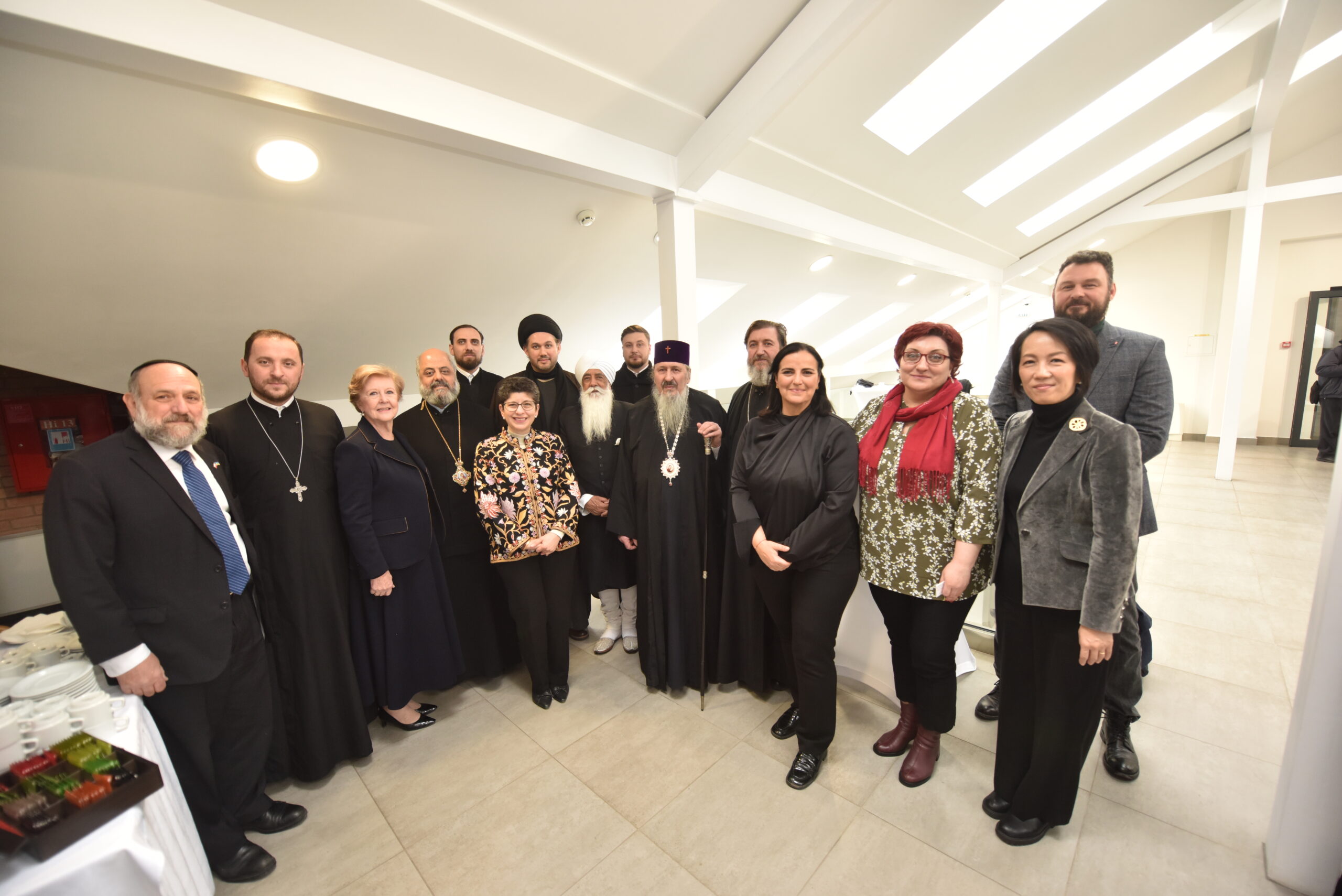
Religious Leaders call for increased support for refugees and host communities
© UNHCR/ Salahaldeen Abdulrahman
Chisinau, 2 February
This week, the Government of the Republic of Moldova, Religions for Peace, and UNHCR, the UN Refugee Agency, hosted a delegation of leaders of the world’s diverse faith traditions, the Multi-Religious Council of Leaders. The delegation was welcomed by Minister of Culture Sergiu Prodan, local religious leaders and representatives from faith-based organizations involved in the refugee response, in a ‘Solidarity for Peace Dialogue’, featuring a roundtable discussion to bolster inter-religious support for refugees and their host communities in Moldova.
Forced displacement is a complex and growing crisis. By mid-2022, over 103 million people were forcibly displaced worldwide, with 74 per cent of them hosted in low- and middle-income countries. Responding to this crisis requires a whole-of-society approach as outlined in the Global Compact on Refugees, encompassing not only States and humanitarian organizations, but also religious leaders and faith-based organizations.
This initiative, bringing together international and local faith leaders as well as the Government and civil society to mobilize inter-religious support for refugees was the first of its kind. Faith leaders present encouraged their communities and faith-based organizations in their tireless provision of services and the promotion of inclusion and social cohesion in forced displacement contexts.
“Religions for Peace is committed to sharing the light of wisdom and compassion coming from each and all faith traditions. The strong belief is that when religions work together, no one is left behind”, said Prof. Azza Karam, Secretary General of Religions for Peace.
Despite challenges and limited resources of their own, Moldovans have shown remarkable humanity in welcoming almost 750,000 Ukrainian refugees since the invasion of Ukraine almost a year ago. Over 102,000 refugees currently remain, almost half of whom are children.
“As wars, conflict, and persecution continue to force people to flee their homes, we seek the support of faith leaders and their communities…We need a new commitment to solidarity with all refugees, no matter where they are coming from. The solidarity in Moldova is an important example for the rest of the world”, said Gillian Triggs, Assistant High Commissioner for Protection at UNHCR.
This initiative will support UNHCR in deepening its engagement with religious leaders to promote inclusion and social cohesion and better coordinate services for people who are forcibly displaced as well as the communities who receive them, enabling refugees and host communities alike to live more dignified lives, in line with the spirit of the Global Compact on Refugees.
For more information, please contact:
About UNHCR
UNHCR, the UN Refugee Agency, protects people forced to flee their homes because of conflict and persecution. We work in over 130 countries, protecting millions of people by responding with life-saving support, safeguarding fundamental human rights, and helping them build a better future. For more information, visit www.unhcr.org
About Religions for Peace
Religions for Peace comprises 90 national and six regional Inter-Religious Platforms, provides direct, multi-religious humanitarian support, and mobilises faith communities across the globe to welcome migrants and refugees, For more information, visit www.rfp.org
Share on Facebook Share on Twitter